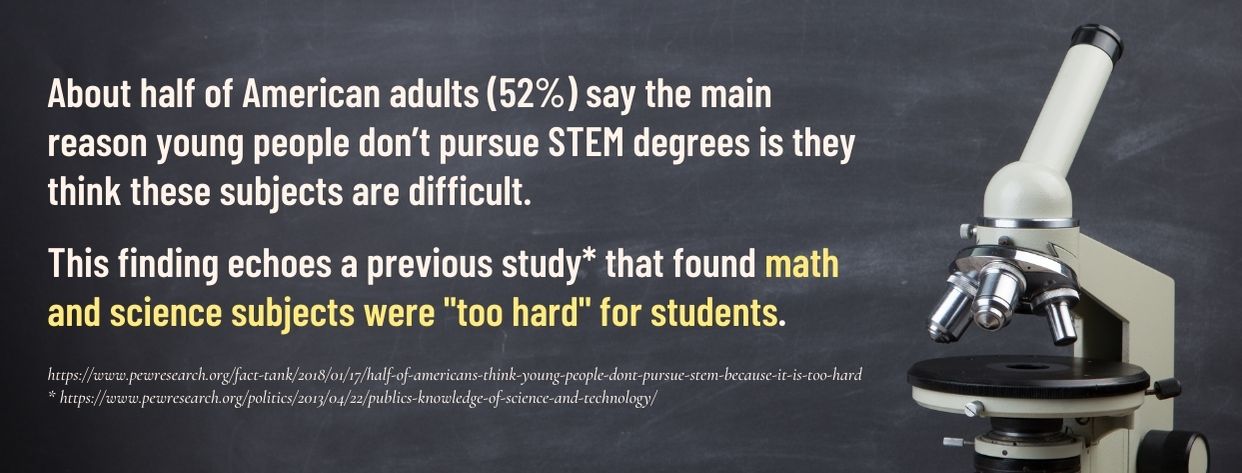Find Your Perfect School
Science is the greatest example of a group effort. It helps all creatures live longer and healthier, developing medicine to cure diseases, relieving aches and pains, and assisting us in providing our basic needs. Science delivers solutions to everyday problems and aids in investigating the universe’s great mysteries.
If you feel like you’re not someone who will enjoy a science major, you can pursue other degrees that will still pay well. But remember, all non-STEM degrees will still require you to study at least one general education science.
What we have below is is a list of 10 bachelor’s degrees that pay well and will not require extensive science courses:
Bachelor of Science in Hospitality Management
Being an inclusive field, Hospitality Management entails overseeing the administration, operational, and commercial processes in the hospitality sector. Unlike the more narrowly focused “hotel management,” hospitality management is an umbrella term that encompasses several industries, including food and beverage, travel and accommodation, and event management.
A hospitality manager’s responsibilities may include everything from maintenance and housekeeping to spa services, concierge, and reception, among other things.
While program requirements vary, you will almost certainly be required to take a 3-credit course in Environmental Science as part of your general education requirement. You’ll concentrate on courses like hotel engineering, financial accounting, food and beverage, hospitality communication, and financial management, among others.
Graduates of hospitality management programs are well-positioned for high-paying managerial positions in the industry. There are numerous job opportunities available in restaurants, bars, cafes, and catering services. According to the Bureau of Labor Statistics, job growth in this sector will grow up to 7 percent through 2032.
Many of those job openings are due to the need to replace workers who change occupations or retire. Furthermore, BLS predicts a return to pre-pandemic travel and event spending patterns and Airbnbs that creates stiff competition with the hotel industry.
Bachelor of Arts in Graphic Design
A picture, everyone says, is worth a thousand words, and a well-designed advertisement, website, or poster can provide information to a specific audience. This degree combines technical skills with artistic abilities. Students will learn how to communicate creatively using color, typography, and photography to bring their creative vision to life.
A general education foundation in graphic design is usually followed by art history, art theory, and composition courses. While you don’t need any deep scientific knowledge to graduate in graphic design, you will still be required to take 3 to 6 credit hours of science as part of your general education requirements. There’s nothing to worry about, though, because the science you’ll be studying isn’t rigorous.
According to the BLS, as of May 2020, graphic designers earned a median annual salary of $57,990. The top 10% of earners in the field made more than $100,920 per year. The highest-paying industries for these professionals are advertising and public relations.
From 2022 to 2032, the BLS predicts a 3% increase in graphic designer employment. Creative designers who stay up to date on the latest technologies, on the other hand, may find more job opportunities. For art directors, the figure rises to 6%.
Bachelor of Science – Legal Studies
A degree in legal studies may be helpful if you want to avoid rigorous science work while still pursuing a high-paying career. This degree provides them with academic training to prepare them for both the workforce and graduate school.
A bachelor’s in legal studies can help you develop the research, writing, and critical thinking skills you need to succeed in this field. Students take classes in criminal justice, history, and philosophy in addition to general education.
In addition, standard courses for this degree include an overview of criminal justice, American constitutional law, and conflict resolution and negotiation. Some programs may require hands-on experience in a related professional environment in addition to lecture-based classes.
The Bureau of Labor Statistics asserts that legal occupations will grow by 9% between 2022 and 2032, adding 91,700 new jobs. Annual earnings vary by profession, but legal studies graduates tend to enter careers that pay well. According to the BLS, paralegals, police officers, and court reporters earn between $59,200 and $69,160 per year.
Furthermore, obtaining a law degree can significantly increase a worker’s earning potential. Lawyers, for example, make a median annual salary of more than $135,740. As a result, pursuing a legal studies degree can open up a variety of career opportunities.
Bachelors in Language Studies
Language Studies is an interdisciplinary academic degree that combines courses from two related but distinct disciplines: Linguistics and Languages. Students study one (or more) foreign languages and investigate how languages and human communication function. This degree is ideal for students who want to learn at least one foreign language and are interested in languages’ complexity and evolution.
Due to its interdisciplinary nature, Language Studies programs can have significantly different curricula depending on the university that offers the course. However, aside from the general education sciences, there are no extensive science courses.
Students will gain excellent oral and written communication skills, analyze information, think critically, and discover how languages function in various contexts. Students focus on being culturally aware, which is essential for any professional communicator.
Linguists make an average annual salary of $59,000 and are experiencing increasing demand, especially for Spanish linguists. You can also work in various fields, including advertising, communications, editing and publishing, journalism, and teaching.
You can also work in the technology industry, where companies work to improve text-to-speech recognition, natural language processing, and similar technologies. Some of the most common Language Studies jobs include teacher, translator or interpreter, diplomat, journalist, public relations specialist, and copywriter.
Bachelor of Arts Communications
A bachelor’s degree in communication prepares graduates to enter the workforce for the first time, pursue a career change or professional advancement, or continue to a master’s degree program in communication. In addition to improving general communication skills, these programs will help you develop critical writing, analysis, and problem-solving abilities. Students also use the tools to analyze, comprehend, and respond to communication issues.
Leadership, business communication, and persuasion courses are required for degree candidates. Students in most programs are also required to take liberal arts courses such as history and English. The only science you’ll be studying here is political science, which isn’t as complicated as the science that involves advanced mathematics.
This is also an exciting field because of new media technologies. While the Bureau of Labor Statistics (BLS) predicts fewer journalism jobs in the future due to declining advertising revenue, other communication jobs are expected to grow.
Employers need advertisement and promotions managers to oversee digital media campaigns and target customers via social media. For example, the BLS predicts that employment of public relations (PR) specialists will increase by 6% between 2022 and 2032, roughly at the same rate as the average occupation in the United States.
Bachelor of Arts in Educational Studies
A bachelor in educational studies program is designed to help you graduate with a major and a minor in education. This major supports students interested in private education but are not ready to fully commit to teaching in a public teaching setting.
While Educational Studies does not provide you with a teaching certification, you may choose to pursue a full teaching degree later in life, which will allow you to teach in public, charter, and religious schools.
This degree instills learning theories, equality and diversity, educational policy and practice, and creativity and education. In addition, the degree will provide a broad understanding of education in social, political, and economic contexts. Some courses include work placement modules, which allow students to put theory into practice. You will only encounter rigorous science coursework if you major in one.
A degree in education studies does not preclude you from working as a K-12 teacher. This degree provides you with skills and knowledge that you can apply to various jobs in education. Knowing your options can assist you in finding a job that matches your interests. According to the BLS, employment in education is expected to grow 6% from 2022 to 2032, creating approximately 857,600 new jobs.
Bachelor of Arts in Real Estate
Bachelor of Arts in Real Estate is a program for people interested in the housing market and who enjoy helping others. This degree will prepare you to make real estate and finance decisions in the field.
This track does not require students to study science. Instead, students are taught about the various real estate laws, policies, and governments that affect the housing market. They also learn how to properly assess current financial and real estate market trends to determine their implications for various types of residents.
Many real estate occupations are seeing an increase in employment opportunities, attributed to various factors. Population growth and a strong economy drive up demand for real estate, creating opportunities for appraisers and assessors. As more people move into apartment buildings, planned communities, and condominiums, job opportunities for property and community association managers are expected to grow.
The BLS says the median yearly salary for real estate brokers and sales agents is $52,030. Property appraisers and assessors earn $61,560 on average per year, while property, real estate, and community association managers earn $60,670.
Bachelor of Arts in Photography
The Bachelor of Arts in Photography degree program prepares adults for a career change, advancement, or graduate education while also providing personal enrichment. Students in the program can choose from various courses in film production, fine arts photography, and professional photography. You’ll gain a broad general knowledge of the traditional liberal arts disciplines while also gaining a deeper understanding of photography.
BA in photography will introduce you to fundamental digital and analog photography technologies and techniques, followed by more independent work as you increase awareness of key themes, ideas, and theories in contemporary practice.
Your final year will most likely include a variety of independent projects, a greater emphasis on research, and possibly a work placement or exhibition. Even though this is a non-STEM degree, you will still be required to complete 3 to 6 credit hours of general education, including science fundamentals.
BLS data set the annual average salary for photographers at $40,170 and has an anticipated growth rate of 4% between 2022 and 2032. On average, 6,100 new job opportunities for photographers are expected each year over the next decade.
The expected growth rates for specialized photographers, on the other hand, will vary. For example, the Bureau predicted that job prospects for portrait and commercial photographers would remain strong, while positions for newspaper photographers would decline by one-third.
Bachelor of Science in Business Administration
A bachelor’s program in business administration provides students with a solid academic foundation in core business functions such as general business administration, finance, project management, accounting, information technology, human resources, marketing, international business, logistics, and organizational behavior.
In short, it focuses on the day-to-day operations of a company and its long-term strategic goals. This degree also provides students with versatility, mobility, and opportunities for professional development.
Students studying business administration gain the fundamental knowledge and skills to adapt to changing markets and technologies in a dynamic economy. As a result, this degree enables graduates to work in nearly any private industry as businesses and organizations require business professionals who can assist them in becoming financially successful. Thus, you do not need any extensive science course to succeed in this field.
After earning this degree, you will work as an accountant and auditor, budget analyst, cost estimator, HR specialist, and logistician, among other jobs. The median annual salary for these occupations ranges from $46,310-$76,850. Furthermore, the Bureau of Labor Statistics forecasts that employment for these professionals will grow by 8% between 2022 and 2032. This rate is faster than the projected growth for all careers in the United States.
Public Administration
Graduates of a public administration program are prepared to work in nonprofit organizations, government agencies, and other social and civil service organizations.
Students pursuing this degree typically have a strong desire to make a difference. Instead of rigorous science coursework, the curriculum provides students with a broad overview of the field, combining survey courses in public service and project management with more in-depth studies in areas such as grant writing. Students should manage a government or nonprofit project from start to finish by the end of their program.
The field of public administration is rapidly expanding. Between 2022 and 2032, the Bureau of Labor Statistics forecasts growth rates for public administration-related careers ranging from 7% (social workers) to 9% (social and community services managers). Furthermore, because emotional intelligence is required in public administration careers, most related jobs should be safe from automation in the coming years.
Key Takeaways
Science is an essential source of knowledge. It serves a specific purpose and performs several functions for the benefit of our society, including the generation of new knowledge, the improvement of education, and the enhancement of our quality of life.
While science is a lucrative career path, not everyone is built to spend their days doing the science work that a science major and career require. And since science courses deal with phenomena in ways that are not common in everyday life, it raises technical concerns, typically mathematical concerns for which specialized aptitudes appear to be required. Many students find this a rewarding challenge, while some find it an absolute nightmare.
Due to the difficulty of the course, students frequently experience anxiety. There are numerous causes of science anxiety, including previous negative experiences in science classes, science-anxious teachers in elementary and secondary schools, gender and racial stereotyping, a lack of role models, and popular media stereotyping of scientists.
To name one stereotype; Many adults have a stereotype of an intelligent, hardworking, male, eccentric, isolated workaholic who works “80-hour weeks” in a lonely laboratory. These images depict social isolation and an “unbalanced” lifestyle, making more students avoid science.


